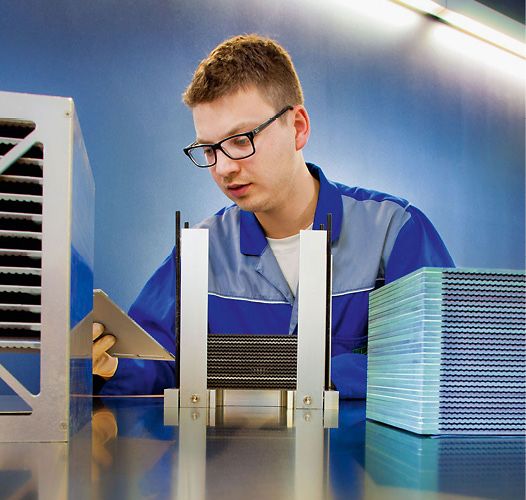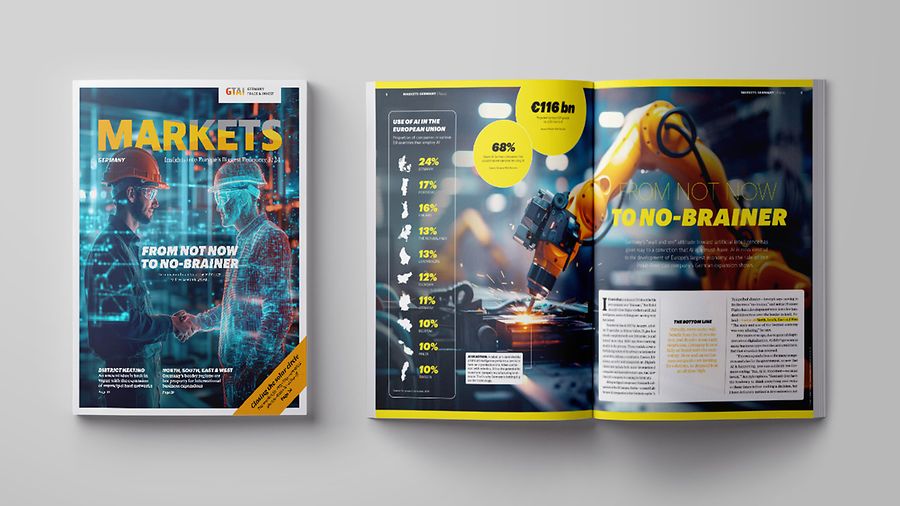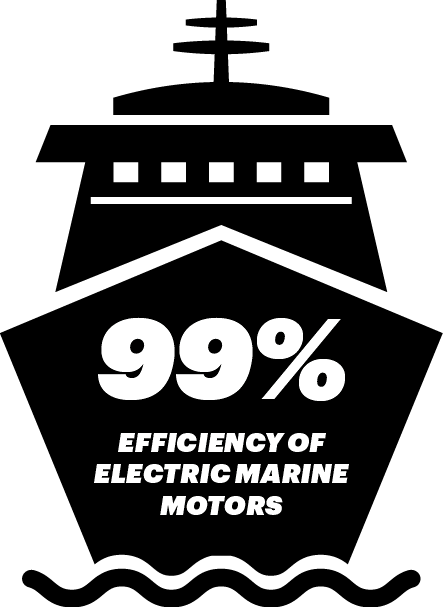Markets Germany Magazine 3/24 | Innovations
Innovations
The global business community admires the spirit of invention that drives the German economy. Here we highlight some of the most intriguing trends and research projects.
Jan 02, 2025
Red Hot Electrolysis
High-temperature electrolysis process makes its way to series production

The Fraunhofer Institute for Ceramic Technologies and Systems (IKTS) in Dresden has over 20 years’ experience in the field of high electrolysis: using electricity to split water into O2 and H2 at temperatures of almost 1000 degrees Celsius. Together with the electrolyzer producer Thyssenkrupp Nucera, IKTS scientists are transferring the high-temperature electrolysis process to series production. To this end, IKTS has built a new pilot plant in the eastern regional state of Thuringia to this end.
“This high-performance technology will be another strong pillar of the CO2-free and thus climate-friendly energy mix of the future without fossil fuels,” explains Werner Ponikwar, CEO of ThyssenKrupp Nucera.
Because these systems are comparatively expensive to produce, the technology is not established, but costs will inevitably come down as it matures. Moreover, the process offers several advantages over cold electrolysis. Instead of rare precious metals, less expensive materials such as ceramics can be used. It consumes less power because process energy is supplied in the form of heat (which makes it interesting for industries that generate a lot of waste heat). And CO2 can be extracted from the environment and converted into green synthesis gas and downstream products such as e-fuels.
www.ikts.fraunhofer.de/en

This article was published in issue 3-2024 of the Markets Germany Magazine. Read more articles of this issue here
Eco-friendly plastics SUBSTITUTE
Hamburg-based start-up produces a viable natural alternative to plastic
A young company called Traceless has developed a process that converts plant waste into a sustainable plastic substitute. The granulate produced by the new process can be manufactured using conventional methods to replace plastic or plastic coatings in a variety of products, including food containers, disposable cutlery and clothes hangers. Compared to plastic, the innovative material saves 91 percent of CO2 emissions and is completely plastic-free, biodegradable and compostable.
The two Traceless founders have successfully completed initial product tests with companies such as clothing retailer C&A and airline Lufthansa. The company is in the process of building an industrial production facility in Hamburg. “Here we want to show that we can actually produce our material on a large scale and competitively,” says co-founder and COO Johanna Baare.
www.traceless.eu
High-tech AERO hub
Rolls-Royce–Lufthansa aero overhaul network is growing rapidly
The climbing cost of airline tickets and the specter of climate change have not so far curbed people’s desire to travel. In fact, the number of intercontinental flights is steadily increasing. This trend is a boon for N3 Engine Overhaul Services, a joint venture between Lufthansa Technik and Rolls-Royce. Last year the company overhauled and inspected 132 Rolls-Royce engines for more than 50 international airlines. Capacity is set to almost double: Up to 250 engines per year are to be inspected due to increasing demand, and for that reason, N3 is investing around EUR 150 million in expanding its site in Thuringia.
www.n3eos.com
Water harvesting in deserts
Super sponges from Saxony capture water from the air
A team of researchers from the Helmholtz-Zentrum Dresden-Rossendorf (HZDR) and the Dresden University of Technology in Saxony has developed a groundbreaking method for extracting water from the atmosphere so that inhabitants of arid regions will have a better supply of drinking water in the future. These tiny “super sponges” are made out of metal and organic material and are full of small cavities just like a kitchen sponge. Mass production is still a long way off. The researchers are currently working on making the super sponges suitable for everyday use. But they are already capable of filtering up to 1.3 liters of water per kilogram of their own weight per day from the air. In the next step, the scientists want to gain a better understanding of the water-binding mechanisms of the super sponges to develop more efficient materials and to increase their suction power.
www.hzdr.de
Maritime technology 4.0
Next-gen marine propulsion technology helps reduce ship emissions

The long-established company Ramme, based in the eastern regional state of Saxony-Anhalt, has developed electric marine motors with an efficiency of up to 99 percent. Unlike conventional induction motors, the rotors of PM systems are equipped with permanent magnets, making them typically two to four percent more efficient at full load than comparable induction motors. The high efficiency translates into an energy savings potential of more than 20 percent compared to conventional systems.
The Ramme motors help conserve resources and reduce CO2 emissions in the marine industry. The lower energy costs also improve the return on investment. The technology already has high adoption: Every year 100 ships worldwide, from small ferries to huge cruise liners, are fitted with Ramme motors.
Sailing on a tailwind
Start-up creates unique flow measurement technology
Vectoflow, from near Munich, is revolutionizing the world of flow measurement with its unique probes—the first in the world to be produced using a 3D printer. Measuring just 1.2 mm, they are among the world’s smallest, most robust and also most accurate.
To achieve such precision, the probe is calibrated by being exposed to different flow fields in a wind tunnel. “We measure flows, whether water, air, gas or oil—the main thing is that it moves. During the measurements, we evaluate all possible parameters, i.e., speed, temperature, pressure and flow angle,” explains Vectoflow co-founder Katharina Kreitz. Kreitz developed the technology at 27, while finishing her degree in mechanical engineering.
Vectoflow’s customers, which include internationally renowned entities such as NASA, Airbus and Tesla, use the measurement data to optimize their products. For example, it makes cars and planes more aerodynamic, thereby saving fuel. Late last year, the company raised EUR 4 million from investors. It will go toward increasing series production.
www.vectoflow.de